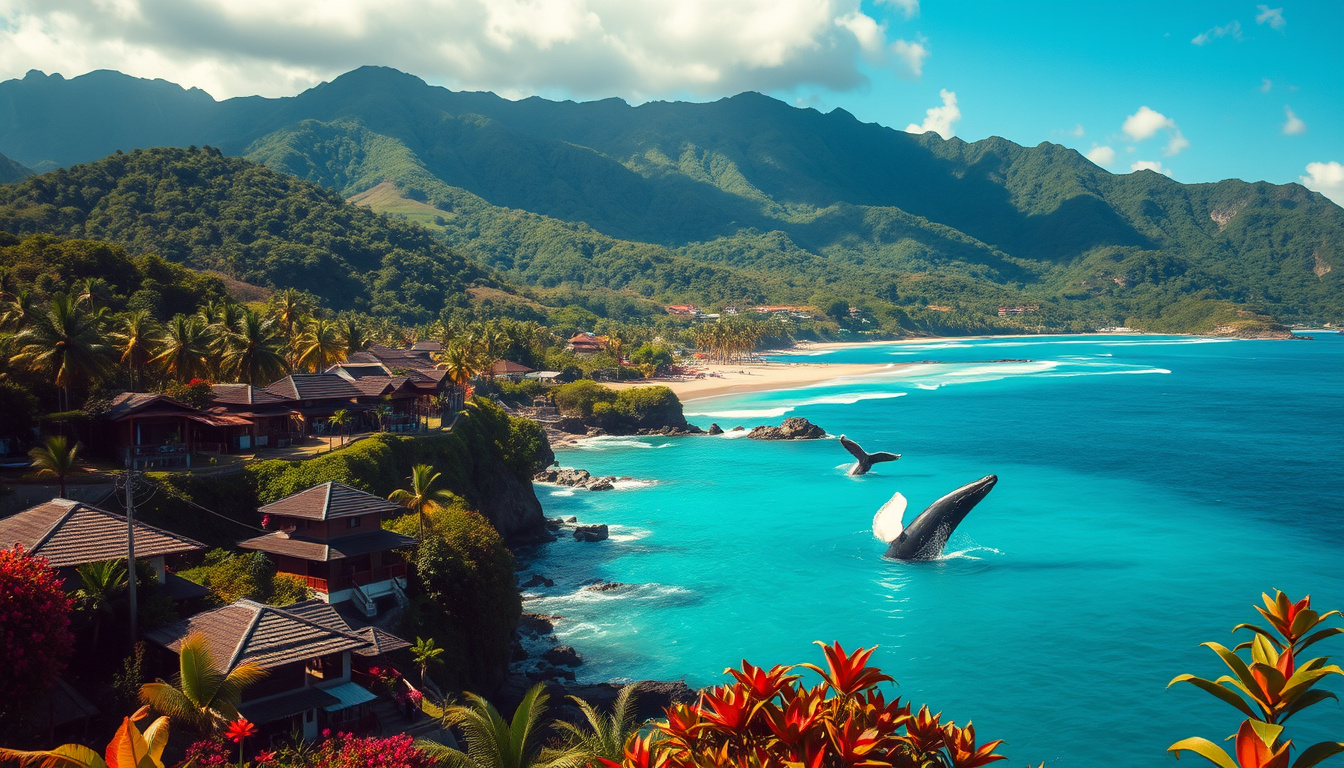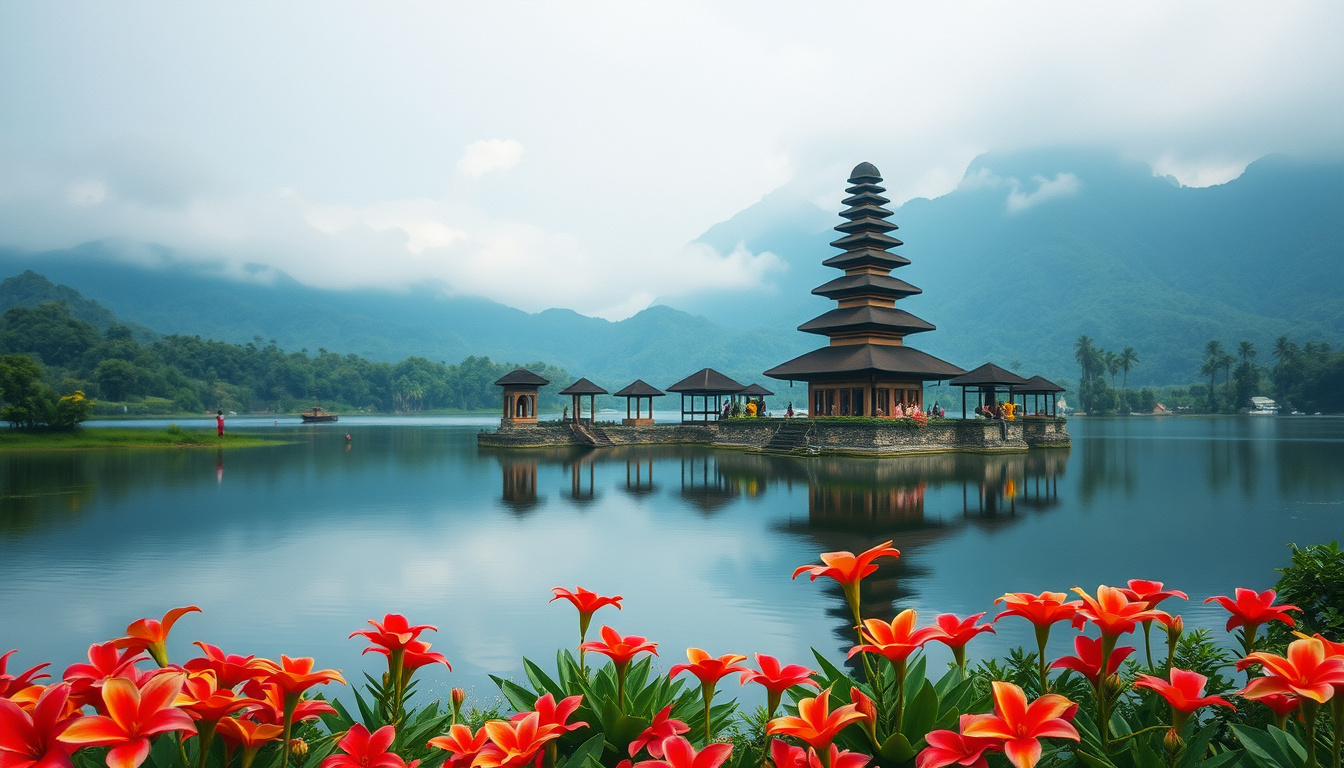Bali Eco-Tourism: Sustainable Apps & Green Guides
April 02, 2025
As tourism continues to thrive in Bali, travelers are increasingly aware of the environmental impact of their adventures. The island, celebrated for its lush jungles, pristine beaches, and vibrant cultural scene, confronts challenges posed by a rising visitor influx. Emphasizing eco-conscious travel, Bali offers a variety of sustainable options to explore the island’s wonders while preserving its natural beauty.
Embracing Eco-Friendly Travel
With an eye toward responsible tourism, visitors can take advantage of sustainable accommodations, organic dining, and unique conservation activities. From eco-lodges that implement renewable energy to organic restaurants that focus on locally sourced ingredients, Bali is filled with opportunities to enjoy the island in a manner that is respectful to the environment.
Eco-Friendly Stays in Bali
Choosing accommodations that promote responsible tourism is a significant step for eco-conscious travelers. Bali boasts an array of sustainable options, such as the traditional Javanese-style hotel Bambu Indah in Ubud, which combines permaculture principles with a focus on sustainability. Another notable mention is Fivelements Retreat, which emphasizes holistic wellness and plant-based dining. Budget travelers can also find eco-friendly hostels such as The Farm Hostel in Canggu that prioritize comfort while adhering to sustainability practices.
These accommodations often utilize solar energy, rainwater harvesting, and zero-waste initiatives, thereby minimizing their carbon footprint. To streamline the reservation process, travelers are encouraged to book through eco-conscious travel apps while utilizing eSIM technology for seamless connectivity.
Nature-Based Activities
Bali’s remarkable biodiversity and stunning landscapes make it a paradise for nature lovers. Popular eco-friendly activities include hiking to the summit of Mount Batur at sunrise, where adventurers are rewarded with breathtaking vistas. The Tegalalang Rice Terraces in Ubud offer travelers insight into centuries-old Balinese agricultural practices.
For marine enthusiasts, snorkeling in areas such as Amed or Menjangan Island provides access to vibrant coral reefs and diverse aquatic life. A visit to West Bali National Park, which is home to endangered species like the Bali Starling, allows tourists to actively support conservation efforts while enjoying the island’s beauty.
Supporting Sustainable Dining
Bali’s culinary landscape features an array of sustainable eateries focusing on organic, locally sourced, and plant-based options. Recommended destinations include:
- Locavore: Known for its commitment to utilizing seasonal local ingredients.
- Zest Ubud: A vibrant plant-based café emphasizing sustainable farming practices.
- The Shady Shack: Serves fresh vegetarian meals in an environmentally friendly setting.
- KAFE: Promotes the use of organic ingredients and ethical sourcing.
Many dining establishments incorporate biodegradable packaging and composting programs to further support sustainability. With the help of an eSIM, travelers can efficiently locate these eateries, make reservations, and utilize digital payment methods to reduce cash usage.
Eco-Tourism Apps for Responsible Travel
Technology plays a crucial role in promoting responsible tourism, offering travelers tools to minimize their environmental impact. Essential apps for eco-conscious tourists include:
- Gojek & Grab: Ride-hailing services that provide eco-friendly transport options.
- Too Good To Go: Helps reduce food waste by selling surplus meals at discounted rates.
- HappyCow: A resource for locating vegan and sustainable restaurants.
- RefillMyBottle: Maps free water refill stations, helping to reduce the need for single-use plastic bottles.
Utilizing an eSIM allows travelers to download these applications, book eco-friendly experiences, and navigate Bali effortlessly while reducing reliance on disposable materials.
Guidelines for Responsible Tourism
To further enhance their eco-friendly footprint, visitors to Bali should adhere to a set of do’s and don’ts for responsible tourism:
Do’s:
- Carry a reusable water bottle to minimize plastic waste.
- Support local artisans and businesses.
- Engage in beach clean-ups and conservation activities.
- Choose eco-friendly adventures such as hiking or snorkeling.
- Respect marine life and wildlife by selecting ethical tour operators.
Don’ts:
- Avoid single-use plastics, including straws and bags.
- Do not litter in natural or sacred areas.
- Refrain from purchasing souvenirs made from endangered species.
- Steer clear of unethical wildlife tourism, such as riding elephants.
- Use reef-safe sunscreen to protect marine ecosystems.
The Importance of eSIM for Eco-Travelers
An eSIM offers several advantages for travelers seeking a sustainable approach to tourism. It allows for easy activation before arrival, reducing waste associated with traditional SIM cards. Additionally, eSIMs facilitate reliable navigation, seamless digital payments, and access to real-time updates on eco-tourism events and conservation initiatives, all contributing to a more responsible travel experience.
Conclusion
Bali’s growing eco-tourism movement offers travelers a diverse range of options to explore the island while preserving its natural assets. By choosing sustainable lodges, dining at organic restaurants, and participating in ethical activities, visitors can contribute to environmentally responsible practices. Utilizing an eSIM allows for easy access to sustainable experiences, ensuring that Bali’s beauty can be enjoyed by future generations. By making mindful decisions, travelers not only enhance their own experiences but also play a vital role in protecting the island’s exquisite environment.











Add a comment